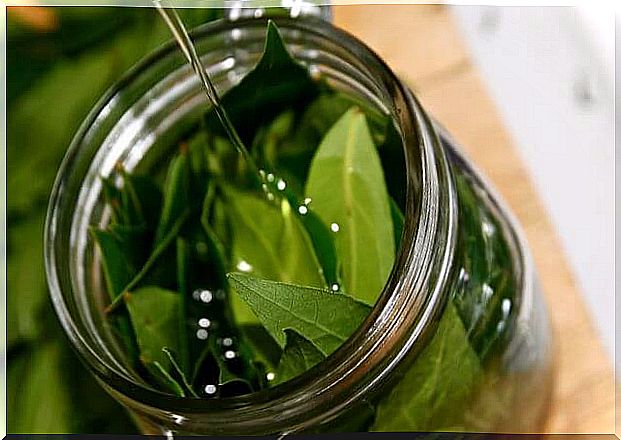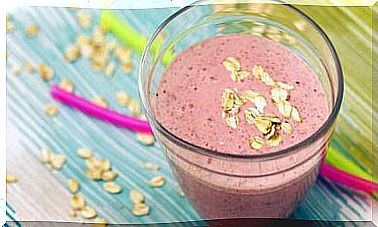How To Make Bay Oil At Home?
Bay leaf oil has a very pleasant aroma that, in addition to helping to relax the mind, also relaxes the body. In fact, this is one of the most popular natural oils used for massage.
In addition, several medicinal properties are attributed to it. Mainly, antibiotics, antiseptics and analgesics. Therefore, it is considered that it could be very useful for various alleviating and mitigating various health problems.
Below we will tell you how you can prepare bay oil yourself and what you can use it for at home. Do not miss it!
Bay leaf oil benefits
In order to understand all the good that is said about bay oil, it is necessary to review the potential of its main ingredient.
Laurel is a good ingredient to enhance the flavor of dishes. For something, it is a condiment commonly used in Mediterranean cuisine. It adds a very good taste to meats, rice and some sauces. Now, what may be a little more unknown to us are the therapeutic uses of its essential oil.
The Spanish Nutrition Foundation (FEN) explains that bay leaves contain an essential oil whose main components are cineole and eugenol. It also contains various organic acids, minerals (iron and calcium mainly) and vitamins (riboflavin, niacin and vitamin A).
The essential oil obtained from the fruits (“bay butter”) was traditionally used for the treatment of osteoarticular inflammation and pediculosis. However, today it is believed that it can be useful to promote states of relaxation, relieve stress and thus calm the mind and body.

Promotes muscle relaxation
According to popular wisdom, bay oil is a muscle relaxant. This is because it is attributed a vasoconstrictor action that would be responsible for promoting both the contraction and relaxation of the nerve impulse, in addition to regulating blood circulation.
Therefore, it is considered that its application through massages would be very useful in case of headaches or migraines, neck or shoulder pain, etc.
Contributes to decongestion
Just as the use of eucalyptus leaves to make medicinal vapors in case of colds or flu is widespread, the use of bay oil diluted in water for the same purpose is also widespread.
It is also used to lightly moisten poultices that are then applied to the chest to provide relief.
In general, with both the first and second remedies, the aim is to mitigate congestion and thus promote better breathing.
Improves skin health
This oil is said to contain several vitamins, minerals, and antioxidants that support skin health. In addition, it is attributed anti-inflammatory, antifungal, antimicrobial and antiseptic properties – as indicated in this study -, which is why it is considered that it could help eliminate skin infections and other related problems.
Promotes hair growth

Just as rosemary is said to help hair grow, so it is popularly said that bay oil can promote hair growth when applied regularly within a proper beauty and care routine.
Supposedly, the oil penetrates the scalp and strands and stimulates blood circulation, thus helping to grow the mane.
On the other hand, it is said that the aroma of this oil repels insects, therefore, it is not only used to scare away mosquitoes from the home, but also lice.
Bay leaf oil recipe to prepare at home
To prepare your own bay leaf oil at home you will only need to follow the following recipe, which is very simple.
Ingredients
- Bay leaves (15 g).
- 1 cup of sweet almond oil (about 200 g).
Utensils
- 1 glass jar or jar (with a capacity of 200 ml).
- 1 long metal spoon.
Preparation
- Wash the jar or glass jar well.
- Introduce the bay leaves, making sure that they are all very clean, without any speck of dust or rest of other plants.
- Drop the almond oil already.
- Close hermetically and let it macerate for 40 days.
- Use in moderation.

What you should NOT do with bay oil
Bay leaf oil should never be ingested as it can cause poisoning. Its use should only be topical and, in most cases, it is usually necessary to dilute it in water, so that it does not cause skin irritation.
If you have sensitive skin or suffer from any skin condition, it is essential that you consult with your dermatologist before starting to use it. And in case they authorize you to do so, try to follow their recommendations.









